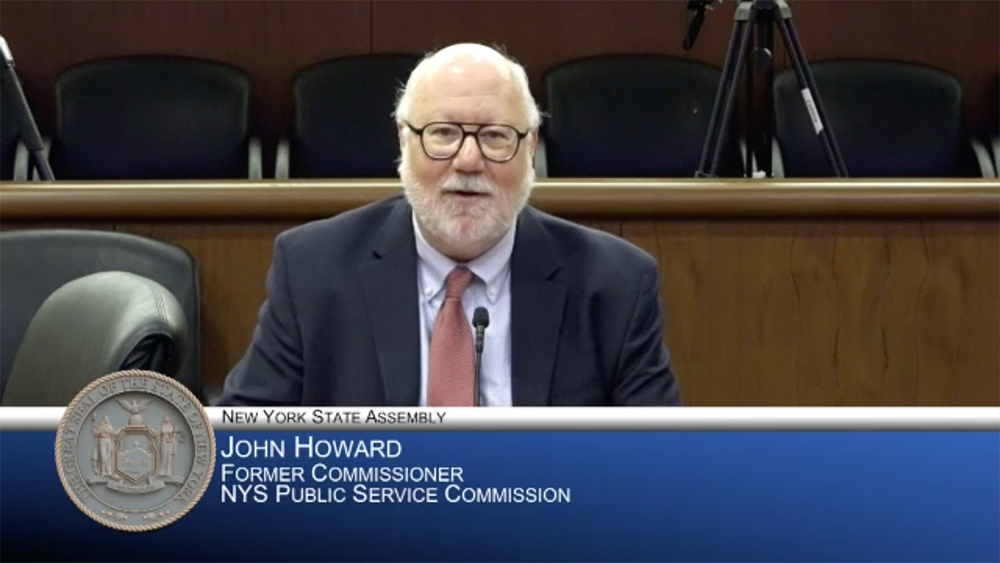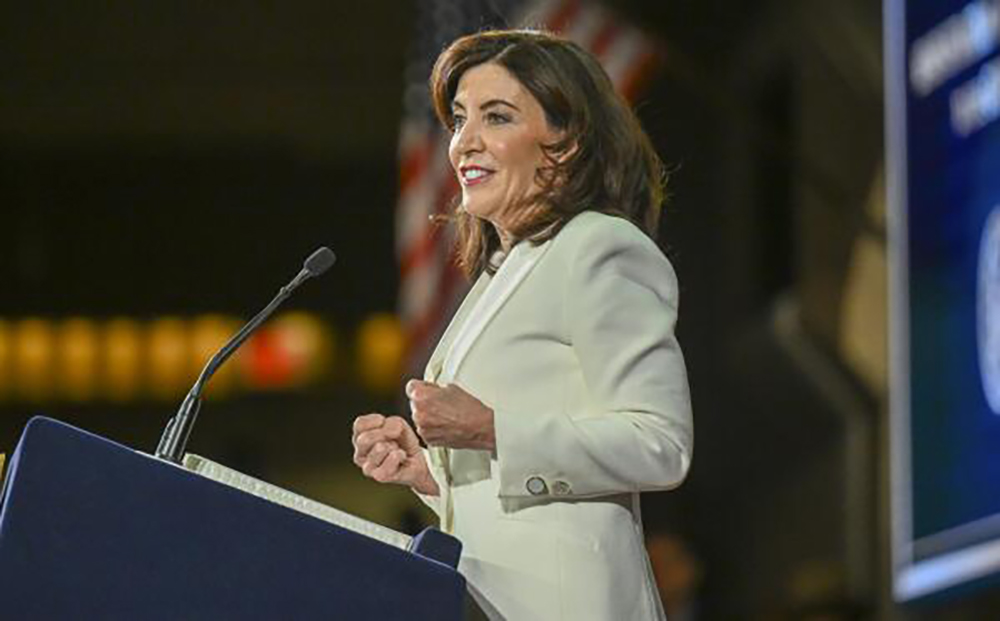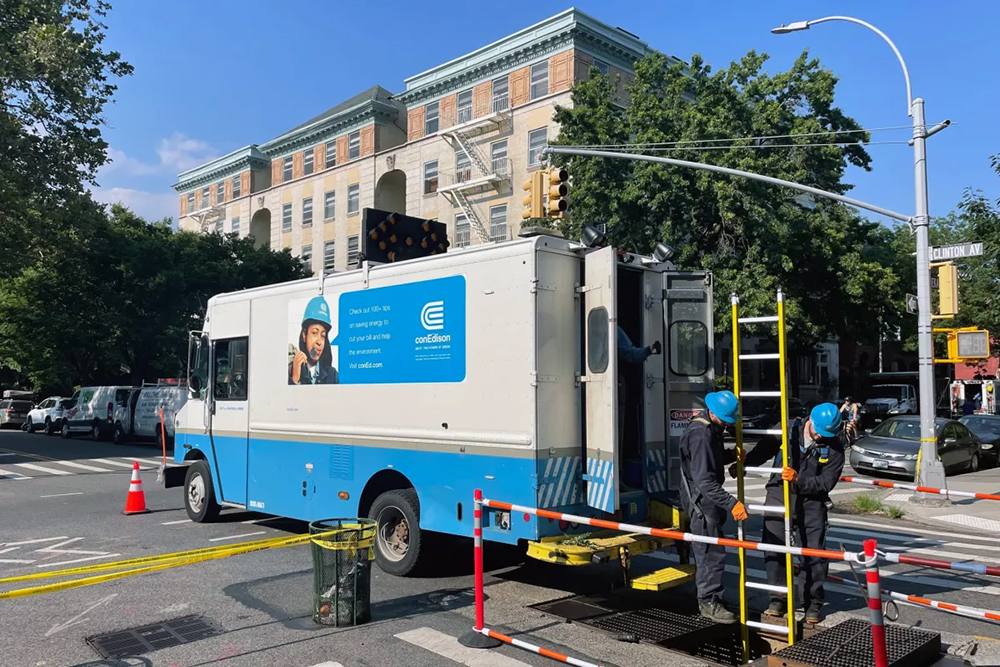|
Getting your Trinity Audio player ready...
|
Edited by: TJVNews.com
New Yorkers are bracing for yet another major energy rate increase, as Con Edison has proposed a dramatic hike that would push the average monthly gas and electric bill up by $154 compared to five years ago. According to a report on Wednesday in The New York Post, the proposed rate increases would result in customers paying a staggering $1,848 more per year than they did in 2020—a financial burden that has left many residents struggling to keep up with rising costs.
According to the information provided in The New York Post report, Con Edison is seeking approval from New York State’s Public Service Commission (PSC) for double-digit rate increases that would impact both gas and electric consumers. The plan would result in an 11.4% increase for electricity rates and an even steeper 13.3% increase for gas bills, making it significantly more expensive for New Yorkers to power and heat their homes.
If approved, the rate hikes would push the average total utility bill from $346 per month in 2020 to approximately $500 per month in 2025, according to The New York Post. This includes electricity costs rising from $170 to $211 per month for customers using 600 kilowatt-hours (kWh) monthly as well as gas bills for heating soaring from $176 to $289 per month for those consuming 100 therms monthly.
However, Con Edison argues that the average New York City residential customer uses much less electricity than the state average, consuming only 280 kWh per month rather than the 600 kWh statewide average. Still, The New York Post reported that even with this lower consumption rate, city residents would see their electric bills jump from $103.24 to $117.37 per month.
For customers who rely on gas for heating, the impact is even more severe. The New York Post confirms that households using 100 therms per month would see an increase of $46.42, pushing their bills to $289.41—a 15.7% hike. Multi-unit buildings (four or more dwelling units) consuming 2,549 therms per month would see a massive increase of $529.61, bringing their total bill to $5,490.60—a 10.7% jump. Even households only using gas for cooking would see a 15.7% increase, adding $6.59 to their bills, raising them to $48.45 per month.

The proposed increases have triggered public outrage, with energy experts and consumer advocates urging state officials to reconsider the aggressive push for green energy initiatives, which they argue is significantly driving up costs. According to The New York Post, former PSC Commissioner John Howard is among those sounding the alarm.
“We have to take a breath,” Howard told The New York Post, emphasizing that the transition to clean energy has not been transparent about its real costs for average consumers.
Howard criticized Governor Kathy Hochul and state lawmakers for failing to provide clear information on how much the shift toward renewable energy sources will financially impact residents. He also took issue with New York’s policy of allowing Con Edison to pass its massive property tax burden onto consumers, calling it an unfair practice that exacerbates the financial strain on ratepayers.
“We have made Con Edison the tax raiser for New York,” Howard told The New York Post. “It’s allowed under state law. It’s usury.”
The timing of Con Edison’s proposed rate hikes also coincides with a major political shift, as The New York Post noted that President Donald Trump has vowed to champion fossil fuels and roll back the Biden administration’s push for renewable energy mandates.
Trump has repeatedly criticized the cost of the green energy transition, arguing that aggressive investment in wind and solar energy has led to skyrocketing energy prices nationwide.
On the other hand, former President Joe Biden and New York state officials remained committed to expanding clean energy initiatives, including wind, solar, and electrification of heating systems. But critics, including Howard, argue that this rapid transition is placing an unsustainable financial burden on working- and middle-class families—many of whom are already struggling with the rising costs of housing, food, and transportation.
The looming rate increases have left many New Yorkers reeling from sticker shock, as their energy bills have already been steadily rising in recent years. According to The New York Post, the cumulative effect of year-over-year increases has made it significantly harder for people to afford their basic living expenses.
A Con Edison customer from Queens told The New York Post, “Every month, my bill gets higher, and I don’t know what to do. I already cut down my energy use, and now they want to charge me even more?”
Another resident in Brooklyn expressed frustration over the city’s energy policies, telling The New York Post, “The city keeps telling us to go electric for everything, but now they’re making electricity unaffordable. It’s unsustainable.”
Even small businesses are worried about how these increases will impact their bottom line. A Manhattan restaurant owner told The New York Post, “We already struggle with rent, wages, and food costs. Now we have to pay even more for gas and electricity? It’s going to drive small businesses out of New York.”

While Con Edison’s proposal is still pending approval from the Public Service Commission, The New York Post report highlighted that rate hikes of this magnitude are often met with resistance from consumer advocacy groups and elected officials.
Governor Kathy Hochul and the New York State Legislature have yet to weigh in on the controversy, but The New York Post report suggested that public pressure could push lawmakers to demand a more gradual approach to rate increases or additional consumer protections.
At the same time, Trump’s potential return to office could significantly reshape federal energy policies, potentially delaying or reversing state-level commitments to clean energy investments. If Trump scales back federal mandates for renewable energy, New York’s approach to energy pricing could face new political and economic challenges.
For thousands of New Yorkers, the rate hikes could mean choosing between paying for electricity or affording other essential expenses.
For Kamal Khondkar, a 43-year-old Bronx resident, the news of yet another rate increase is devastating. The New York Post reported that Khondkar, who owns a one-bedroom apartment in Parkchester with his wife, is already struggling to cover basic costs.
“I have a lot of bills to pay — rent, credit cards, grocery. Eggs are $10 a dozen, and now you want to add this to it?” Khondkar told The New York Post. “More money going to ConEd means less for everything else. How will we survive? They can do it and get away with it because they know you can’t do without [electricity], you can’t get around it.”
Khondkar’s frustration is shared by hundreds of thousands of New Yorkers, many of whom are already behind on their utility payments. According to the information contained in The New York Post report, 496,007 residential households were at least 60 days delinquent on their Con Edison bills in December 2024, owing a staggering $948 million.
Con Edison blames the increase on state mandates requiring the company to upgrade its infrastructure to comply with New York’s aggressive green energy goals. As was indicated in The New York Post report, The Climate Leadership and Community Protection Act—a sweeping environmental law—demands that New York slash greenhouse gas emissions by 40% by 2030 and achieve 100% zero-carbon-emission electricity by 2040.
While these goals seek to combat climate change, consumers are the ones shouldering the financial burden. The cost of modernizing the electrical grid and integrating renewable energy sources like wind and solar is being passed along to ratepayers, leaving many struggling to cope.
But the real shock to consumers comes from hidden property taxes on utilities, which most New Yorkers don’t even realize they are paying. According to The New York Post, state and city lawmakers allow Con Edison to pass property tax increases directly onto customers—burying the cost inside their monthly utility bills.
Con Edison itself admitted that property taxes make up a huge chunk of the proposed increase, stating that 27% of the electric rate increase is due to property tax costs and 14.5% of the gas rate increase is due to property tax costs.
That means nearly one-third of the higher electric bills have nothing to do with actual energy costs—but rather with taxes imposed by New York lawmakers.
Governor Kathy Hochul’s office is now facing pressure to intervene. According to The New York Post report, Hochul has directed the Department of Public Service (DPS) to “thoroughly scrutinize” Con Edison’s proposal.
“The governor strongly opposes any effort to increase the cost of living for New Yorkers and is directing the Department of Public Service to thoroughly scrutinize the request by Con Edison to raise utility bills,” a Hochul spokesperson told The New York Post.
However, critics argue that Hochul and state lawmakers helped create this crisis by allowing utility companies to pass tax increases onto consumers while pushing aggressive climate policies without providing a realistic financial roadmap for working-class New Yorkers.
The Public Utility Law Project (PULP), a ratepayer advocacy group, is preparing to challenge the increase before the Public Service Commission (PSC). PULP’s executive director, Laurie Wheelock, warned that New Yorkers cannot afford this rate hike.
“Con Ed customers are already struggling to pay their bills,” Wheelock told The New York Post.
Given the hundreds of thousands of delinquent accounts, consumer advocates fear that more families will fall deeper into financial distress if the rate hike goes through.
According to The New York Post, Con Edison’s proposal would drive the average residential gas and electric bill up by $154 per month compared to five years ago—amounting to $1,848 more per year. For many struggling families, this could mean the difference between paying rent and falling behind on utilities.
New York’s aggressive push toward green energy is at the heart of the issue. While environmentalists praise the move toward renewable energy, everyday ratepayers are feeling the financial strain.
With New York City already one of the most expensive places to live, residents are asking whether their government is doing enough to balance environmental goals with economic realities.
The fallout from Con Edison’s previous rate hikes and high energy costs has already been devastating for many New Yorkers. The New York Post reported that more than 190,000 termination notices were sent to customers, warning them that their power could soon be shut off if they failed to pay overdue bills. More than 6,000 accounts have already been terminated, according to consumer advocacy group Public Utility Law Project (PULP) Executive Director Laurie Wheelock.
As utility costs continue to rise, more families and businesses are struggling to keep up with payments, leading to concerns that even more customers will lose access to electricity and gas if the proposed rate hikes go into effect.
Despite Con Edison’s request to increase rates yet again in 2025, The New York Post reported that the Public Service Commission (PSC) has historically reduced the size of Con Ed’s requested increases through its regulatory review process.
According to PSC spokesman James Denn, the rate-setting process is designed to protect customers from unreasonable price increases. “Nothing about a utility’s rate case is taken for granted or assumed,” Denn told The New York Post. He explained that regulators and consumer advocacy groups carefully scrutinize Con Ed’s financial records to find ways to cut unnecessary costs and limit rate increases.
Historically, The New York Post notes that the PSC has significantly slashed Con Ed’s proposed hikes. In 2023, the PSC cut Con Ed’s rate hike request by 60% and in 2020, the PSC reduced Con Ed’s requested increase by 75%
However, even with these reductions, The New York Post reported that New Yorkers have still been burdened with rising costs. The PSC ultimately approved an average 12% increase in Con Ed’s electric rates over three years (2023-2025) and a staggering 18.9% increase in gas bills over the same period.
Despite the backlash, Con Edison insists that these increases are necessary to upgrade infrastructure and expand capacity. According to The New York Post, the company argues that the higher rates will help fund major projects such as providing more power for the redevelopment of Kennedy Airport, expanding capacity for MTA bus depot, supporting the shift to residential and vehicle electrification, the establishment of a new clean energy hub in Brooklyn and replacing aging and leaky gas pipes.
The company maintains that these investments are critical for New York’s future energy needs, especially as the state transitions toward green energy initiatives under its Climate Leadership and Community Protection Act. However, The New York Post report noted that critics argue the financial burden of these projects is being unfairly placed on consumers.
For low-income New Yorkers struggling with the growing financial burden of energy costs, Con Edison does offer an affordability program designed to help ease the impact.





